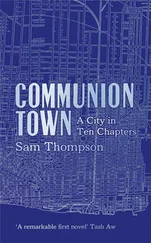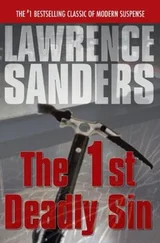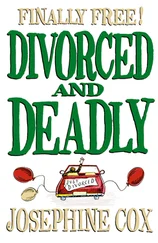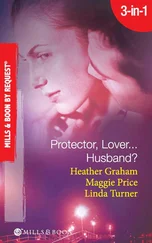Frank Tallis - Deadly Communion
Здесь есть возможность читать онлайн «Frank Tallis - Deadly Communion» весь текст электронной книги совершенно бесплатно (целиком полную версию без сокращений). В некоторых случаях можно слушать аудио, скачать через торрент в формате fb2 и присутствует краткое содержание. Жанр: Исторический детектив, на английском языке. Описание произведения, (предисловие) а так же отзывы посетителей доступны на портале библиотеки ЛибКат.
- Название:Deadly Communion
- Автор:
- Жанр:
- Год:неизвестен
- ISBN:нет данных
- Рейтинг книги:3 / 5. Голосов: 1
-
Избранное:Добавить в избранное
- Отзывы:
-
Ваша оценка:
- 60
- 1
- 2
- 3
- 4
- 5
Deadly Communion: краткое содержание, описание и аннотация
Предлагаем к чтению аннотацию, описание, краткое содержание или предисловие (зависит от того, что написал сам автор книги «Deadly Communion»). Если вы не нашли необходимую информацию о книге — напишите в комментариях, мы постараемся отыскать её.
Deadly Communion — читать онлайн бесплатно полную книгу (весь текст) целиком
Ниже представлен текст книги, разбитый по страницам. Система сохранения места последней прочитанной страницы, позволяет с удобством читать онлайн бесплатно книгу «Deadly Communion», без необходимости каждый раз заново искать на чём Вы остановились. Поставьте закладку, и сможете в любой момент перейти на страницу, на которой закончили чтение.
Интервал:
Закладка:
Loiberger bowed and lowered himself into the chair that Haussmann had provided.
After the exchange of pleasantries, Rheinhardt made a steeple with his hands, peered over the pinnacle created by his touching forefingers, and waited for Herr Loiberger to speak.
‘Inspector. Forgive me for this intrusion — but …’ Herr Loiberger suddenly looked less confident. ‘I think I am in possession of information that could possibly be of some use to you.’
‘Please proceed.’
‘My wife’s cousin died yesterday.’
‘Did she? I am very sorry.’
‘There is no need to be. The familial bond was not particularly strong. Indeed, I must confess that my wife didn’t really like her cousin.’
‘I see.’
‘She was a valetudinarian, completely preoccupied by imaginary illnesses.’
‘That is a very peculiar thing to say of someone who has just died, Herr Loiberger.’
‘None of us are immortal, inspector. Even valetudinarians must die of something … eventually.’
‘You were saying: your wife and her cousin were not close.’
‘Quite so. Be that as it may, the responsibility of arranging the funeral has fallen upon my wife. My wife’s cousin’s estranged sister lives in England and the cousin’s brother — I regret to say — is something of a ne’er-do-well. He lost all his fortune at the gaming table and escaped his debtors by going to America. He is still in America, but God only knows where.’
‘I am sorry, but how — may I ask — is this information useful to me?’
‘When you came to my coffee house you were asking questions about the man whom I had seen with Cacilie Roster. Do you remember?’
‘Yes, I remember our conversation very well.’
‘Today, I accompanied my wife to Schopp and Sons — the undertakers. They are situated near the old Town Hall. Our meeting with Herr Schopp was rather protracted on account of my wife’s cousin having left behind rather elaborate instructions for the church service and her interment. I have no idea why, because she was an atheist. It was as we were leaving that I saw him. He emerged from a door at the back of the reception area and immediately made his exit through another door.’
‘Him — being the man?’
‘Indeed.’
‘You are quite sure,’ said Rheinhardt slowly, ‘that it was the same man — the man with black hair and blue eyes — whom you saw with Cacilie Roster on Sunday night?’
‘Quite sure.’
Rheinhardt leaned forward.
‘Could he have recognised you?’
‘No, I don’t think so. He didn’t look over.’
‘And when did this happen?’
‘About an hour ago. I came here directly.’
‘Thank you, Herr Loiberger,’ said Rheinhardt. Then, calling over to his assistant, he added: ‘Haussmann. Would you be so kind as to organise a carriage?’
46
Liebermann, Rheinhardt and Haussmann said very little to each other as the carriage rattled past the Stock Exchange, up Wipplingerstrasse and towards the Old Town Hall. It was a short journey and completed in a matter of minutes. Before getting out, Rheinhardt reached into his coat pocket and produced a pistol — a gleaming Luger Po8. He made some final checks and indicated his readiness to proceed.
They stepped down from the carriage and walked to the entrance of Schopp and Sons.
‘Haussmann, you wait here. If he runs out — tackle him.’
‘I’ll do my best, sir.’
‘Good man.’
Rheinhardt opened the door and entered, Liebermann following behind him. The vestibule of the funeral parlour was large and austere. Apart from a crucifix, the ubiquitous portrait of the Emperor, and a vase of fragrant flowers, there were no other decorative features. A roll of black carpet encouraged visitors to step forward to a walnut reception desk which was at that moment unattended. One of several doors located behind the desk suddenly opened, and a gaunt grey-haired man, dressed in a long old-fashioned frock coat and wearing half-moon glasses, advanced to greet them. He seemed to have mastered the skill of soundless locomotion and glided forward silently, like a ghost. His hands were clasped in front of his chest and his shoulders were slightly hunched.
‘Gentlemen. Herr Wiesner — at your service.’
He bowed and remained in this submissive attitude for longer than protocol required. When he straightened up again — or at least straightened up as much as his wilting spine would allow — Rheinhardt showed him his identification.
‘I would like to speak to the director,’ said Rheinhardt.
‘One moment, please,’ said Wiesner.
After a brief absence, he returned and guided them down a long windowless corridor lit by flickering gas lamps. On either side were pedestals supporting ornate cinerary urns and statues of sphinxes. The effect was rather dreamlike. They arrived at a door on which Wiesner tapped with the knuckle of a crooked finger, producing a knock so faint that it was barely audible. Then he opened the door and extended his arm, inviting Rheinhardt and Liebermann to enter.
‘Good afternoon, gentlemen,’ said a man standing by a tall window. He was gazing up at the sky which sagged with the promise of imminent rain.
‘I am Detective Inspector Rheinhardt and this is my colleague, Doctor Liebermann.’
‘That will be all, Wiesner.’ Schopp was completely bald but for two tufts of white hair that fanned out from behind his ears. His beard and moustache were also white but jaundiced by cigar smoke. ‘Please sit.’ He left the window and sat down on an ostentatious chair with a high carved back. It created the illusion of two eagles perched on his shoulders.
‘I would like to interview one of your employees,’ said Rheinhardt. ‘I do not know his name but I do have a description. He is a young man in his late twenties or early thirties. He has black hair and blue eyes.’
Schopp nodded.
Rheinhardt expected him to speak but a peculiarity of his manner delayed his response by a few uneasy seconds.
‘You must mean Herr Sprenger. Markus Sprenger.’
‘In what capacity does he work here?’
‘He is an undertaker. But he has also made himself very useful to Doctor Profanter — our embalmer.’
‘Useful?’
Again, the response was delayed.
‘He prepares Doctor Profanter’s instruments and assists him when he arrives.’
‘When did Herr Sprenger start working for Schopp and Sons?’
‘He commenced work here about a year ago. Before then, I believe he was employed by Concordia. He came to us with excellent references.’
Schopp’s delivery was disconcerting. It was as though his sense of time deviated from everyone else’s.
‘Where is he now?’ asked Rheinhardt.
‘I don’t know exactly. I’ll call Wiesner.’
‘If it’s not too much trouble, Herr Schopp, I would be most grateful if it was you who helped us to find him.’
Schopp shrugged and rose from his chair.
‘Herr Wiesner is perfectly capable.’
‘With respect, Herr Schopp …’ Rheinhardt gestured towards the door.
‘Very well. This way, please.’
The corridor outside led past a series of offices, some of which were occupied by middle-aged men attending to paperwork. Herr Schopp asked them if they had seen Herr Sprenger, but none of them had. A larger room, filled with coffins and smelling of sawdust and varnish, was empty. The morgue was also deserted.
Herr Schopp consulted his pocket watch. He stared at its face for an inordinate period of time before saying: ‘I’m sorry, Inspector Rheinhardt. It is five minutes past five. He must have gone home.’
‘Do you have his address?’
‘Wiesner will get it for you.’
Читать дальшеИнтервал:
Закладка:
Похожие книги на «Deadly Communion»
Представляем Вашему вниманию похожие книги на «Deadly Communion» списком для выбора. Мы отобрали схожую по названию и смыслу литературу в надежде предоставить читателям больше вариантов отыскать новые, интересные, ещё непрочитанные произведения.
Обсуждение, отзывы о книге «Deadly Communion» и просто собственные мнения читателей. Оставьте ваши комментарии, напишите, что Вы думаете о произведении, его смысле или главных героях. Укажите что конкретно понравилось, а что нет, и почему Вы так считаете.












